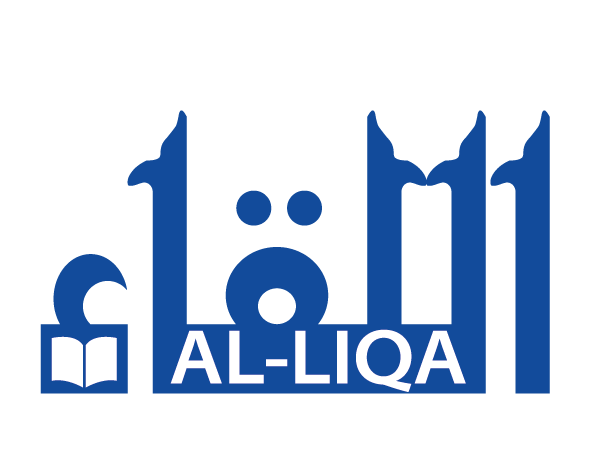The 22nd session of the conference was attended by leading clerics and lay people from the Palestinian communities and scholars from European countries. Participants in the three day conference dealt with several topics revolving around Christian and Muslim relations in East and West. Lecturers focused on several topics: historical back-ground of mutual mistrust between Arabs and the West; Islamophobia in the West: real or imagined; religious discourse between moderation and radicalism; satellites and websites and e-mails are a blessing or a curse?; The role of the Western non governmental institutions between East and West; the impact of tribalism and sectarianism in Arab Society on relations between East and West; and a panel on: Jerusalem: a call for confrontation or peace?
The open ceremonies took place on Thursday 16 December 2010. Latin Patriarch Fu’ad Twal inaugurated the conference and welcomed everyone and reiterated the idea that proceedings of this conference are indeed important. He added that the Local Catholic Church is trying to put the ideas of the October Synod of Catholic Bishops into practice. He also spoke about his visit to Latin America and the Arabic Diaspora and his call for those in the Diaspora to return to their roots. Sheikh ‘Abd Al-Majeed ‘Ata, Mufti of Bethlehem Governorate, stressed the importance of Muslim – Christian unity. Father Pietro Filet, Secretary of the Catholic Bishops, greeted conferees and spoke about his experiences with Al-Liqa’ and his true belief in interfaith dialogue. Dr. Geries S. Khoury was the moderator of the opening ceremonies. He stressed the need for national unity with a thorough examination of all negative factors impeding this unity in a very frank manner and he condemned Al-Qa’eda’s criminal acts against Christians and Muslims in Iraq and all over the world.
In the first session of the Conference Dr. Adnan Musallam and Dr. Yaser Shaheen discussed the “historical, cultural, political and economic factors leading to mutual mistrust between Arabs and the West. Dr. Walid Mustafa moderated the panel.
The first session of the second day, Friday 17 December, Dr. Hamzeh Theeb and Mr. Joergen Klussman from Germany participated in a panel which focused on “the phenomenon of Islamophobia in the West and whether it is fact or fiction”. Mrs. Hanadi Soudah Younan moderated this event which was followed by deep discussions. Following Friday prayer and Lunch, another panel took place titled “Religious discourse between Islamic moderation and the extreme” in which H. B. Michael Sabbah and Prof. ‘Abd Al-Rahman ‘Abbad both presented a Christian and Muslim points of view on this crucial subject. Mr. Mousa Darwish moderated this panel. This was followed with another panel titled “ Are Satellites and Electronic sites: blessing or a curse?” in which Father Rif’at Bader of Jordan and Dr. Nidal Abu ‘Ayyash presented their own perceptions of these crucial developments in the mass media in recent years. Mr. Zeyad Shlewit moderated this panel which was followed with lively discussion and comments.
Dr. Charlie Abu Sa’da gave a talk about “The role of Western non-governmental organizations (NGO’s) in the relations between East and West”. Conferees played a leading role in the thorough discussions that followed.
The proceedings of the third day, Saturday 18 December started with an Islamic invocation by Attorney ‘Ali Rafe’ from Haifa. It was followed by a lecture by Fr. Dr. Rafiq Khoury titled “Sectarianism and Tribalism in Palestinian Society” which was moderated by Sheikh Yousef Khalifa. It was followed by deep discussions and comments.
Following a short break, conferees listened to a panel titled “Jerusalem: a call for confrontation or living in peace” in which Dr. Walid Salem and Dr. Peter Qumri presented their views on the subject. Prof. Dr. Thiab Ayyoush moderated this panel and added many comments to the panel which was followed by discussions and comments.
At the conclusion of the 22nd Session of the conference, conferees issued the following communiqué:
1. The dire need for national unity among all segments of Palestinian society, Christians and Muslims, as well as the various factions in West Bank and Gaza Strip.
2. The need for the Ministry of Waqf (Religious Endowments) to reiterate to priests and pastors and to mosque Imams to focus their preaching’s at least twice a year on religious tolerance, national unity and on a life together.
3. The formation of a committee to support Al-Liqa’s aims and objectives throughout the country.
4. The need to translate lectures to viable foreign languages in order to increase awareness in the West of our pressing issues.
5. The need to bring the attention of Arabic, Islamic and international communities to what is happening to Arab Jerusalem including the Judaization of the city and the undermining of its Arabic character. It also includes the uprooting of its inhabitants and their dispersion to outside their historic city. The dire need as well to support their steadfastness in their city.
6. The need to bring the attention of government officials to the present state of Palestinian curriculum and the need to underline national dialogue in our schools which would enrich Palestinian personality.
7. The need to get the benefits from the role of NGO’s in their support of religious, nationalist, and historical thoughts in Palestinian society. This also includes the enrichment of the culture of dialogue which starts at home, school, university and all educational institutions.
8. Bring the attention of the people in charge of all institutions and NGO’s of the danger of the phenomenon of emigration. This emigration only leads to national disadvantages to all sectors especially young people in Palestinian society who are in dire need of work opportunities in order to put an end to emigration.


